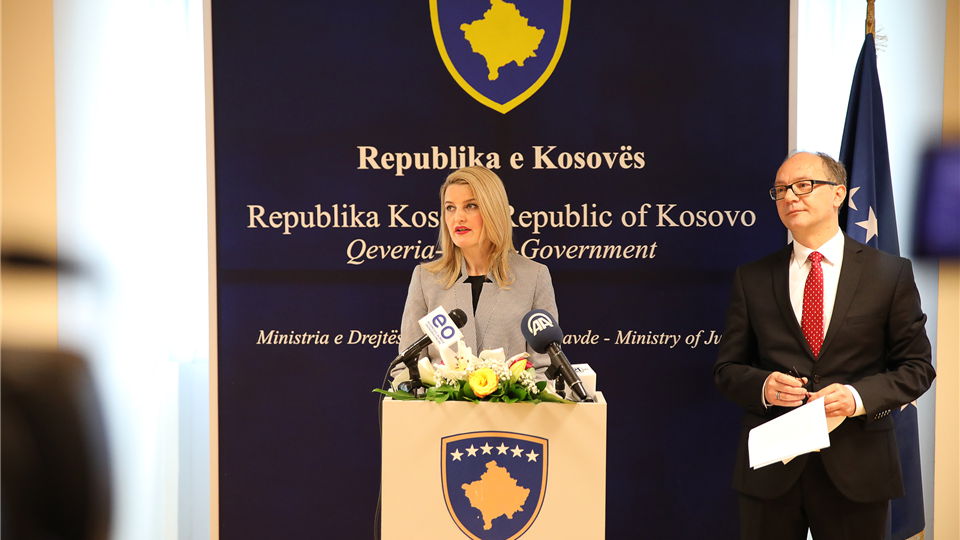

Minister Hoxha: Drafting of Kosovo Civil Code in line with European practices and standards
The Civil Code plays an important role in the development of a functioning system of relations of obligations law, property and real rights, as well as family law and inheritance law.
“Today, a complex and often problematic legal reality exists in Kosovo in terms of implementation and interpretation, hence the need to amend and supplement the laws in order to harmonize them with the European Union directives”, said Minister Hoxha.
Further on, Minister Hoxha stated that the Ministry of Justice is aware that the drafting of this code is an ambitious project for every decision requires expertise in this field. Every approach and decision at this stage, in addition to regulating current issues, should be appropriate for future social developments, too.
In order to establish a legal system, the Ministry of Justice, after careful review, has decided that the Civil Code will follow as reference the German model. “The decision to follow the German model comes as a result of the similarity in the legal approach, methodology, and legal tradition, and also the belief that the German model best fits the needs of Kosovo. Following this model, we believe that we will ensure compliance with the best European standards and practices”, said Minister Hoxha.
Regardless of this decision, Mrs. Hoxha also remarked that the Ministry of Justice will ensure that although this model will be used as a reference, its content will be adapted to the legal and institutional framework, as well as social and legal circumstances in the country. At the end of her speech, Minister Hoxha said that the process of codification of civil law is an evolutionary process, thus she requires and welcomes the contribution of all interest groups.
“Today, I call on the interest groups to follow up on this work and offer their contribution. The Ministry of Justice aims at having broad and inclusive consultations with all stakeholders in the country”, said Minister Hoxha.

